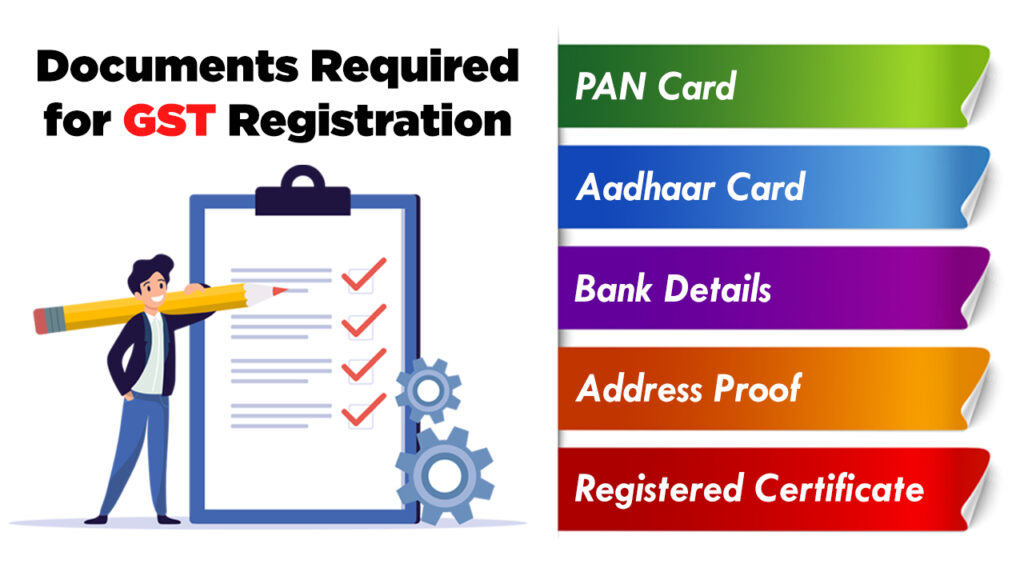From Beginning To End: The Ultimate Roadmap to GST Registration for Services Seeking Financial Security
Browsing the intricacies of Item and Solutions Tax Obligation (GST) registration is a critical step for organizations striving for monetary stability. From comprehending the essential principles of GST to adhering to post-registration standards, the process can seem intimidating at very first look. Breaking down the roadmap into manageable actions can improve the registration journey for companies looking to enhance their financial standing. Let's explore the essential elements that compose this best roadmap and discover how each stage adds to laying a strong foundation for financial success.
Understanding GST Essentials
Looking into the basic concepts of Product and Services Tax Obligation (GST) is important for obtaining an extensive understanding of its effects on companies and the economic climate. GST is a value-added tax imposed on the majority of products and solutions for residential usage. It has replaced several indirect tax obligations that existed in the pre-GST period, enhancing the tax obligation framework and boosting simplicity of doing organization in India. Under the GST system, both services and goods are strained at a certain price, which is figured out based upon their category. Services are called for to register for GST if their annual turn over surpasses the threshold limit established by the federal government. Input Tax Credit Score (ITC) is a substantial attribute of GST, permitting businesses to assert credit score for tax obligations paid on inputs, reducing the total tax concern. Recognizing the basics of GST is important for companies to conform with tax regulations, manage their funds efficiently, and add to the nation's financial growth by taking part in a clear tax system.
Eligibility Requirements for Enrollment
As of the existing policies, the threshold restriction for GST registration is a yearly aggregate turnover of 40 lakhs for businesses running within a state, except for unique category states where the restriction is 20 lakhs. Furthermore, certain organizations are needed to sign up for GST irrespective of their turnover, such as interstate suppliers, informal taxed individuals, and services responsible to pay tax under the reverse fee mechanism. It is essential for organizations to thoroughly assess their turn over and deal types to determine their GST registration commitments properly.
Records Needed for Registration
Having fulfilled the eligibility criteria for GST enrollment, businesses have to now guarantee they have the requisite papers in place to continue with the registration procedure efficiently. The records required for GST enrollment typically consist of evidence of organization constitution, such as partnership deed, registration certificate, or incorporation certificate for various kinds of services. In addition, businesses require to provide files establishing the major area of service, such as a rental contract or electrical energy expense.
Step-by-Step Registration Process
Following, all called for documents as per the checklist offered by the GST portal requirement to be posted. These papers commonly include proof of company registration, identity and address proofs of marketers, financial declarations, and organization entity's PAN card.

Post-Registration Compliance Guidelines

Final Thought
Finally, services seeking financial stability has to recognize the fundamentals of GST, satisfy eligibility criteria, collect needed files, follow the step-by-step registration procedure, and conform with post-registration guidelines - Best GST registration services in Singapore. By adhering to these actions, services can guarantee compliance with tax obligation policies and maintain economic stability in the lengthy run
Furthermore, specific businesses are called for to register for GST regardless of their turn over, such as interstate providers, casual taxed persons, and businesses liable to pay tax obligation under the reverse charge device.Having fulfilled the qualification criteria for GST enrollment, businesses must currently ensure they have the requisite documents in area to proceed with the enrollment process successfully. The files needed for GST registration typically consist of evidence of service constitution, such as partnership action, registration certificate, or incorporation certificate for various types of organizations. Furthermore, businesses require to provide papers establishing read review the primary area of company, such as a rental arrangement or electrical power costs.Starting the GST registration procedure involves view website a series of organized actions to make sure a smooth and compliant enrollment for businesses.
Comments on “Comprehending the Benefits of the Best GST Registration Services in Singapore”